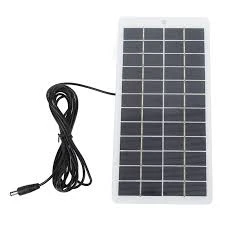Reasons Why Solar Panels May Not Achieve High Efficiency in Energy Conversion
The Inefficiency of Solar Panels Myth or Reality?
Solar energy is often hailed as a clean and sustainable alternative to fossil fuels. However, the efficiency of solar panels has drawn criticism and raised concerns among consumers and environmentalists alike. While solar technology has advanced significantly since its inception, the reality is that solar panels are not as efficient as one might hope. This article will delve into the reasons behind the inefficiency of solar panels and explore the implications for consumers and the environment.
First and foremost, the efficiency of solar panels refers to the proportion of sunlight that can be converted into usable electricity. Most commercially available solar panels boast efficiencies between 15% and 22%. While this may sound impressive, it means that a significant amount of sunlight—up to 85%—is lost or wasted during the conversion process. This inefficiency is primarily due to a variety of factors, including the physical properties of the solar cells, the materials used, and environmental conditions.
The Inefficiency of Solar Panels Myth or Reality?
Moreover, the manufacturing process of solar panels lends itself to inefficiencies. Producing high-efficiency solar cells requires significant amounts of energy and raw materials, which can offset the environmental benefits of generating renewable energy. Furthermore, the extraction and processing of these materials often have detrimental impacts on local ecosystems and communities, raising ethical questions about the sustainability of solar energy as a whole.
solar panels not efficient

While research and development in solar technology have resulted in more efficient panels—such as multi-junction cells that can achieve efficiencies exceeding 40%—these high-performance options are often prohibitively expensive for average consumers. Consequently, many households opt for standard panels, which may not provide sufficient energy output in certain conditions, particularly in regions that experience limited sunlight.
Another factor contributing to the inefficiency of solar panels is the issue of energy storage. Solar energy generation is inherently intermittent; it peaks during sunny days but drops to zero at night. This necessitates reliable energy storage solutions, such as batteries, to ensure a consistent energy supply. However, most current battery technologies also suffer from inefficiencies, which can further curtail the overall effectiveness of solar panel systems.
Looking ahead, addressing the inefficiencies of solar panels should be a priority for researchers and policymakers. Innovations like transparent solar cells, organic photovoltaics, and advancements in energy storage technology offer promising avenues for improving overall efficiency. By investing in research, incentivizing sustainable manufacturing practices, and promoting a circular economy, we can enhance the viability of solar power.
In conclusion, while solar panels present a promising alternative to fossil fuels, their inefficiency remains a significant barrier to widespread adoption. As the world grapples with the pressing challenges of climate change and energy security, understanding the limitations of solar technology is essential. By acknowledging these inefficiencies and striving for continuous improvement, we can work towards a more sustainable energy future that harnesses the full potential of solar energy.
-
Unlocking Energy Freedom with the Off Grid Solar InverterNewsJun.06,2025
-
Unlock More Solar Power with a High-Efficiency Bifacial Solar PanelNewsJun.06,2025
-
Power Your Future with High-Efficiency Monocrystalline Solar PanelsNewsJun.06,2025
-
Next-Gen Solar Power Starts with Micro Solar InvertersNewsJun.06,2025
-
Harnessing Peak Efficiency with the On Grid Solar InverterNewsJun.06,2025
-
Discover Unmatched Efficiency with the Latest String Solar InverterNewsJun.06,2025







